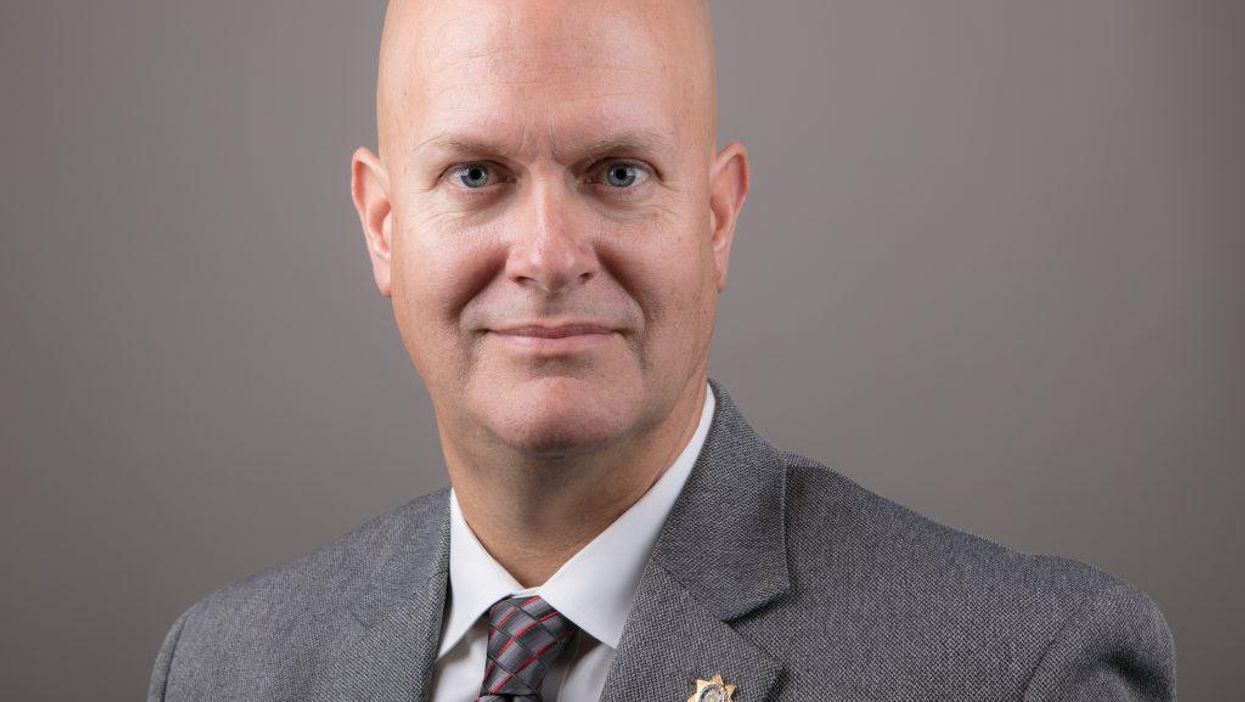Georgia Sheriff Who Dismissed Racist Motive In Shootings Posted Anti-Asian Slur
Reprinted with permission from Daily Kos
Robert Aaron Long, the suspect in fatal shootings at three Atlanta-area businesses, was charged with eight counts of murder on Wednesday, with six of his victims being Asian or Asian American women. Four of the victims still have not been identified by authorities. One survivor, Elcias Hernandez-Ortiz, is in critical condition.
Law enforcement officials have said it's not clear that Long's motive was racist, but there are multiple reasons to doubt this. For one thing, one of the officers advancing this narrative was Capt. Jay Baker of the Cherokee County Sheriff's Office. Long "was pretty much fed up, kind of at the end of his rope, and yesterday was a really bad day for him and this is what he did," Baker said. It didn't take long for Buzzfeed to locate a racist and indeed specifically anti-Asian post on Baker's own Facebook page: a picture of a T-shirt calling COVID-19 an "IMPORTED VIRUS FROM CHY-NA."
"Loved my shirt," Baker wrote accompanying the picture. "Get yours while they last."
This is maybe not the best guy to assess what a racist motive looks like, and it certainly helps explain how he, in his role as sheriff's department spokesman, seemed at least as attuned to the suspect's basic humanity as to that of the victims.
As Rep. Ted Lieu responded to the "bad day" excuse from Baker, "All of us have experienced bad days. But we don't go to three Asian businesses and shoot up Asian employees." Lieu is calling for "the FBI to conduct its own independent investigation."
"We know hate when we see it," Georgia Sen. Raphael Warnock said on MSNBC. "We'll get into the nuances of it, but only hate drives you to take eight precious lives in the way that he did."
While Long told investigators he had a "sexual addiction" and saw the spas and massage businesses he attacked as a "temptation," that hardly eliminates race as a factor considering that, as Twitter user David Dennis Jr. pointed out, "He was so wildly addicted to sex that he drove pass all the strip clubs in ATLANTA to only target establishments where he knows Asian women work." (If you haven't been to Atlanta, please trust that there are a lot of strip clubs.)
Multiple stereotypes of Asian people could have simultaneously fed into the specific targeting of women of Asian descent in these shootings. Helen Kim Ho, a Korean American founder of the group Asian Americans Advancing Justice in Atlanta, listed some of those for The Washington Post: "We're not really Americans, we're perpetually foreigners, and that idea plays out with women as being oversexualized," she said. "All of that had to have played out in this man's own mind. In addition to the unspoken notion that Asian people are easy targets."
"Racially motivated violence should be called out for exactly what it is and we must stop making excuses and rebranding it as economic anxiety or sexual addiction," Rep. Marilyn Strickland said on the House floor on Wednesday. "As a woman who is Black and Korean I am acutely aware of how it feels to be erased or ignored." In this case, specifically, the racial component of a mass killing is being erased and ignored by law enforcement.
There has been a surge of anti-Asian racism in the U.S. over the past year, with the group Stop AAPI Hate tracking 3,800 incidents, 68% of them targeting women. This came as Donald Trump and other prominent Republicans repeatedly blamed the coronavirus pandemic on China.
Aysha Qamar has compiled a list of resources for putting an end to anti-Asian hate.




